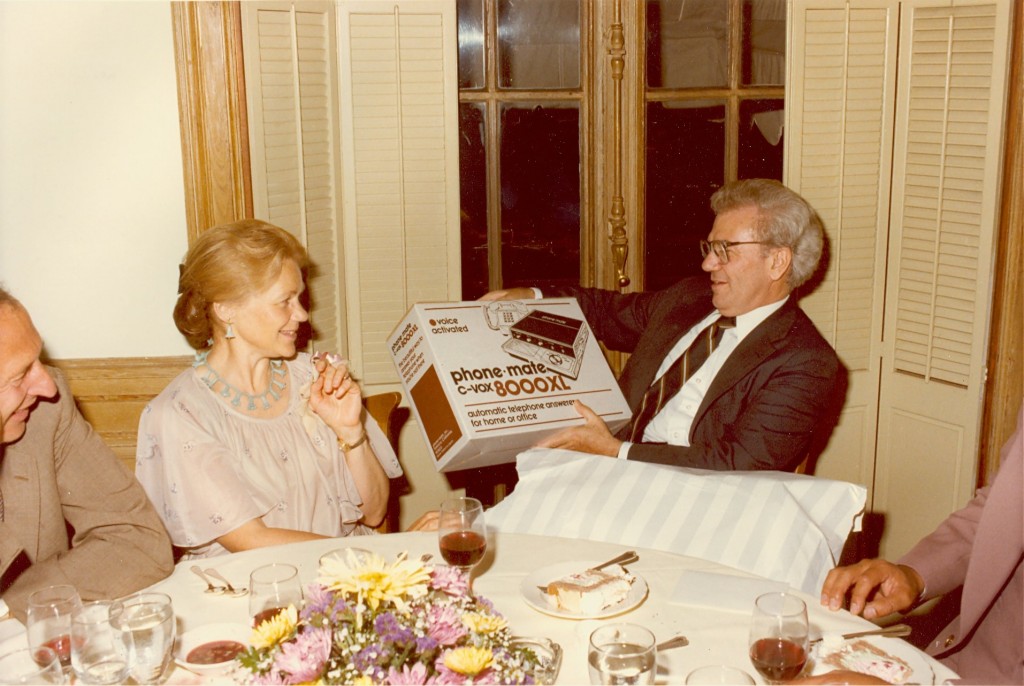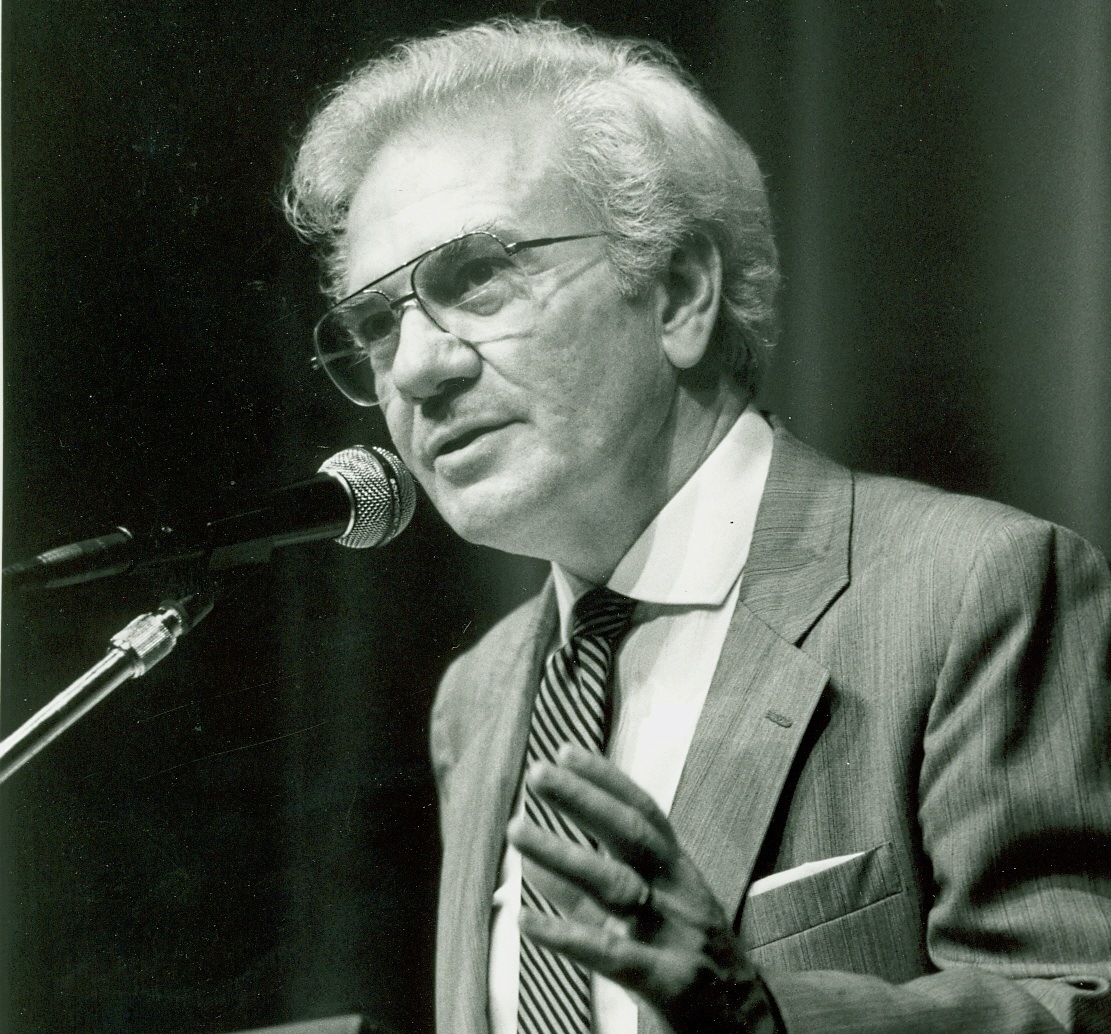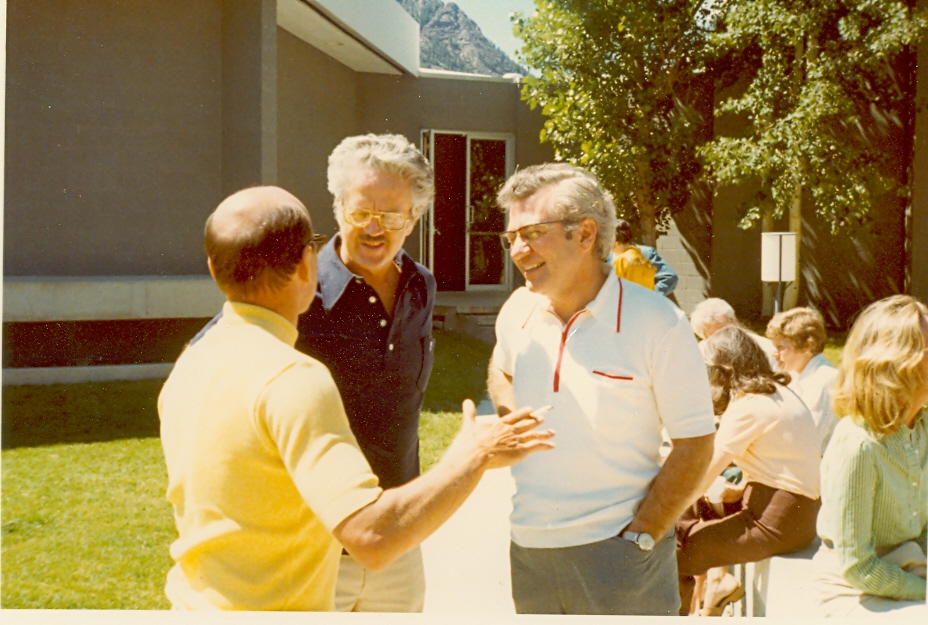
Ernest L. and Kay Boyer opening a gift at a “Dinner with the Deputies” event in Washington, DC. – BCA
Today’s Photo Friday post shows Ernie Boyer and his wife Kay opening a gift at a “Dinner with the Deputies” event in Washington D.C in 1979. If you look closely at the photo, you may notice that the gift Ernie is opening is an “automatic telephone answerer”. Thus, this photo exemplifies the integration of technology into the modern day household and its influence on everyday life, including education.
Yet, how did Boyer feel about the rapid expansion of technology in the world of education? In 1983, Boyer gave a speech at Maricopa Community Colleges in which he elaborates on his opinion. He states:
Looking ahead- teacher anxiety not withstanding- it is my own conviction that this time this new technology revolution will not go away. The plain fact is that technology will teach and if we fail to use it teaching will still go on. What then is the place of technology in formal education? How can it be constructive- not corrosive? First, all students and all teachers should learn about the information revolution. In a general education report students should be taught the impact of mass communication. They should begin to see the extent to which the microchip now controls transition and discover the implications of a global communication network that makes it possible for messages instantaneously to span the globe. Second, I suggest that all students should be able to learn with technology….
The challenge of the future is not to fight technology nor is it to convert the school into a video game factory, competing with the local shopping center. Rather, the challenge is to build a partnership between traditional and non-traditional education, letting the technology, teachers, and the classroom do what they do best.
Viewing this issue of technology from today’s perspective, Boyer was absolutely right. Certainly we see from our smartphones, tablets, and laptops that, since Boyer gave his speech, technology has not gone away and in fact it has made drastic gains with its integration into everyday life. It was because Boyer had this foresight that he argued for, what seems to be, a distinction between learning from technology and learning with technology. To learn from technology is to learn of its uses and implications, while learning with technology is to guide the use of technology for learning and bettering one’s self. It is necessary to make this distinction in order to recognize the need for a balance of technology in the classroom, something which teachers today are told to strive for.
Today, I’m often told that I should upgrade my electronic devices (phone, laptop, etc.) every couple of years. However, it has been over thirty years since Boyer gave his speech on technology and his argument for balance still imparts a vital message. How is it that these words withstood the rapidly advancing technology we rely on? In Boyer’s words, “Television, calculators and computers cannot and will not make discriminatory judgments. They cannot and will not teach the students wisdom. This is the mission of the classroom and the teacher.”
To read the rest of Boyer’s speech, click here.


